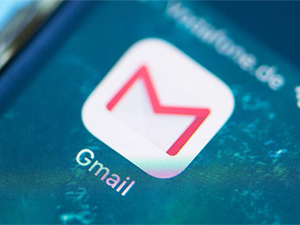



Date:27/08/18
 Google has announced the release of its ‘confidential mode’, a feature that will establish a self-destruct date in emails sent from mobile devices.
Google has announced the release of its ‘confidential mode’, a feature that will establish a self-destruct date in emails sent from mobile devices.
This new feature came with the Gmail redesign project announced earlier this year and was set up by default for Gmail users last July, while G Suite business customers still have a few months to make the change. This cyber security organization feature is now available on mobile devices, Google announced via Twitter.
Google announces this Gmail feature as a way to protect sensitive information by allowing users to set an expiration date for individual messages, as well as the possibility to revoke access to already sent messages.
According to cyber security organization experts, the feature also prevents recipients from forwarding, copying, printing or downloading email content and allows users to ask recipients to enter a unique code sent by SMS to see the email.
The authentication function is intended to protect the information in case of email account hijacking.
While confidential mode could help prevent information leaks, Google points out some warnings. For example, it will not prevent recipients from taking screenshots or photos of sent messages; in addition, confidentiality may be compromised if the recipient uses a malware-infected computer.
Google is more careful about launching the confidential mode for its G Suite users, despite calling the confidential mode as an “Information Rights Management” mode. Currently, the function is disabled by default in G Suite and users must request permission from their administrator to access it.
Some cyber security organization experts question the use of the word ‘confidential’, arguing that it makes users think that the service effectively provides a truly confidential way of sharing information, when in fact it is not.
The Electronic Frontier Foundation (EFF) recently accused Google of providing “misleading guarantees of privacy and security” with the confidential mode function, which could divert users’ attention away from effectively secure ways to send private messages. Its main criticism is that Gmail is not an end-to-end encrypted service, so Google could have access to the messages.
In response to recent concerns about apps developed by third parties with access to the content of Gmail users, Google emphasized that no one on Google reads Gmail messages, but noted that the company is willing to conduct research and testing, if necessary, to know about any error or abuse of any developer.
New feature in Gmail: Sending confidential self-destructing messages
 Google has announced the release of its ‘confidential mode’, a feature that will establish a self-destruct date in emails sent from mobile devices.
Google has announced the release of its ‘confidential mode’, a feature that will establish a self-destruct date in emails sent from mobile devices.This new feature came with the Gmail redesign project announced earlier this year and was set up by default for Gmail users last July, while G Suite business customers still have a few months to make the change. This cyber security organization feature is now available on mobile devices, Google announced via Twitter.
Google announces this Gmail feature as a way to protect sensitive information by allowing users to set an expiration date for individual messages, as well as the possibility to revoke access to already sent messages.
According to cyber security organization experts, the feature also prevents recipients from forwarding, copying, printing or downloading email content and allows users to ask recipients to enter a unique code sent by SMS to see the email.
The authentication function is intended to protect the information in case of email account hijacking.
While confidential mode could help prevent information leaks, Google points out some warnings. For example, it will not prevent recipients from taking screenshots or photos of sent messages; in addition, confidentiality may be compromised if the recipient uses a malware-infected computer.
Google is more careful about launching the confidential mode for its G Suite users, despite calling the confidential mode as an “Information Rights Management” mode. Currently, the function is disabled by default in G Suite and users must request permission from their administrator to access it.
Some cyber security organization experts question the use of the word ‘confidential’, arguing that it makes users think that the service effectively provides a truly confidential way of sharing information, when in fact it is not.
The Electronic Frontier Foundation (EFF) recently accused Google of providing “misleading guarantees of privacy and security” with the confidential mode function, which could divert users’ attention away from effectively secure ways to send private messages. Its main criticism is that Gmail is not an end-to-end encrypted service, so Google could have access to the messages.
In response to recent concerns about apps developed by third parties with access to the content of Gmail users, Google emphasized that no one on Google reads Gmail messages, but noted that the company is willing to conduct research and testing, if necessary, to know about any error or abuse of any developer.
Views: 468
©ictnews.az. All rights reserved.Similar news
- Azerbaijani project to monitor disease via mobile phones
- Innovative educational system to be improved under presidential decree
- NTRC prolongs license of two TV and radio organizations for 6 years
- Azerbaijan establishes e-registry for medicines
- Azerbaijani museum introduces e-guide
- Nar Mobile opens “Nar Dunyasi” sales and service center in Siyazan city
- International conference on custom electronic services held in Baku
- OIC secretary general to attend COMSTECH meeting in Baku
- Azerbaijan develops earthquake warning system
- New law to regulate transition to digital broadcasting in Azerbaijan
- Azerbaijani State Social Protection Fund introduces electronic digital signature
- Intellectual traffic management system in Baku to be commissioned in December
- Tax Ministry of Azerbaijan started receiving video-addresses
- World Bank recommends Azerbaijan to speed up e-service introduction in real estate
- Azerbaijan to shift to electronic registration of real estate





















